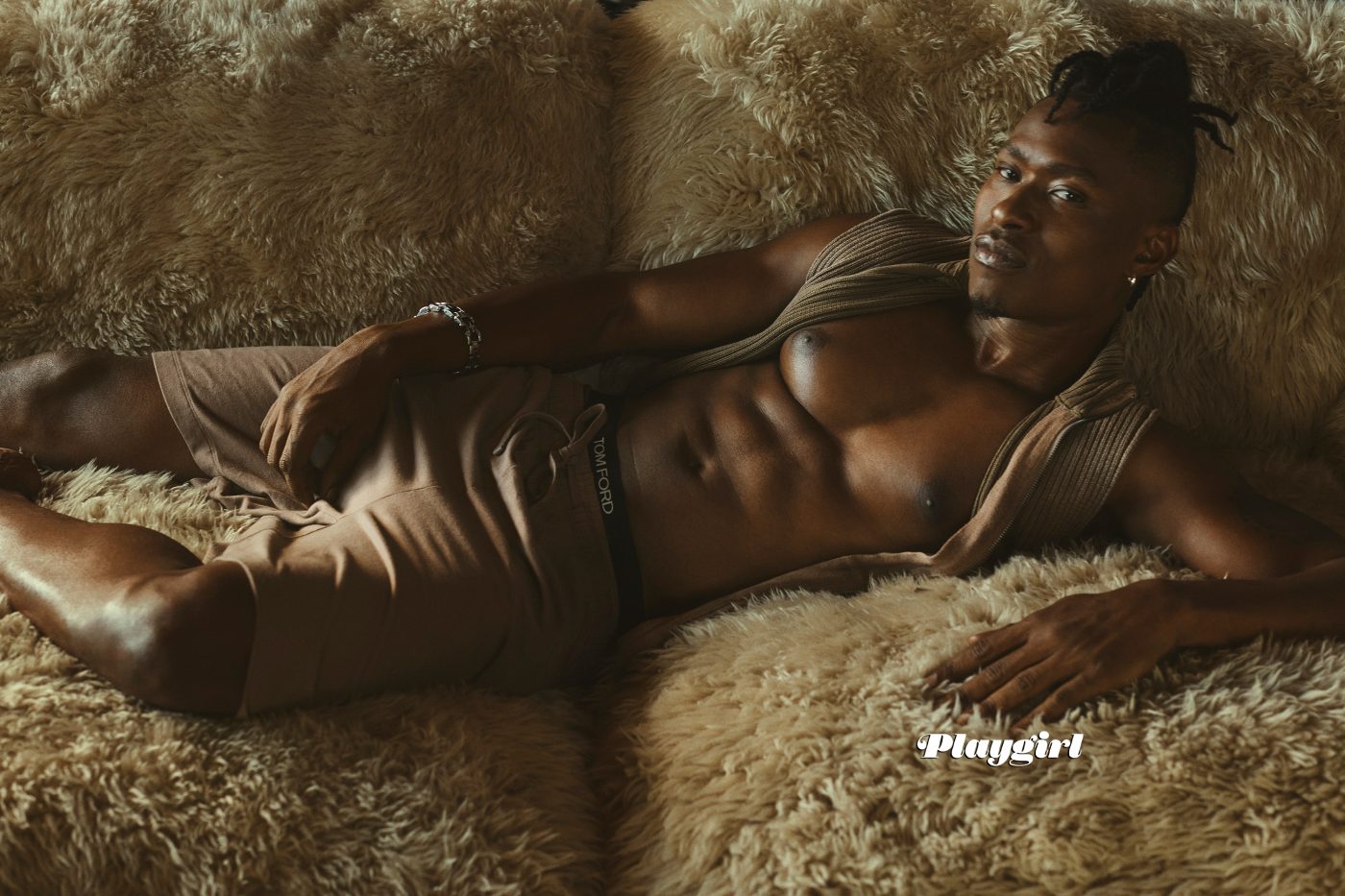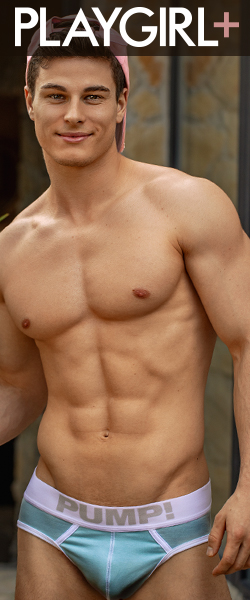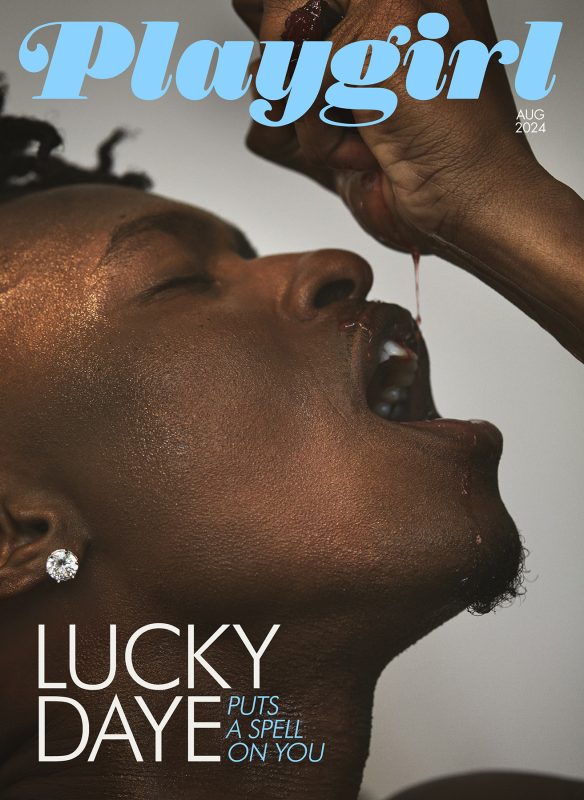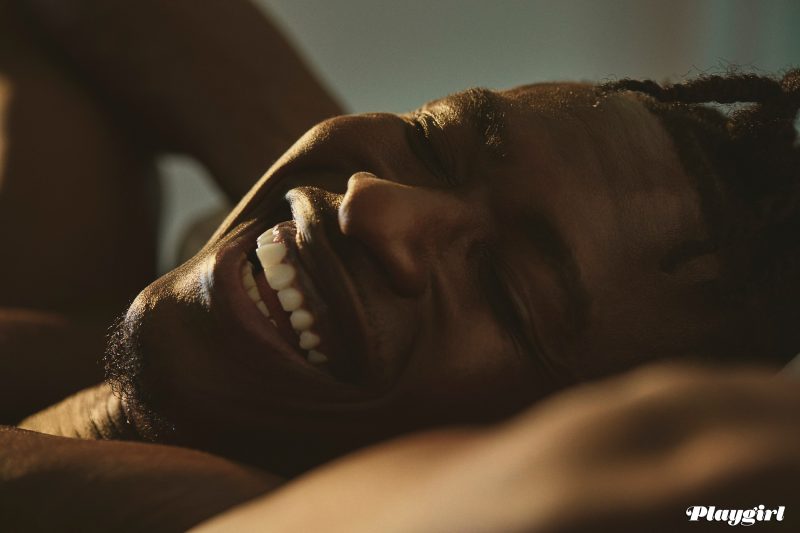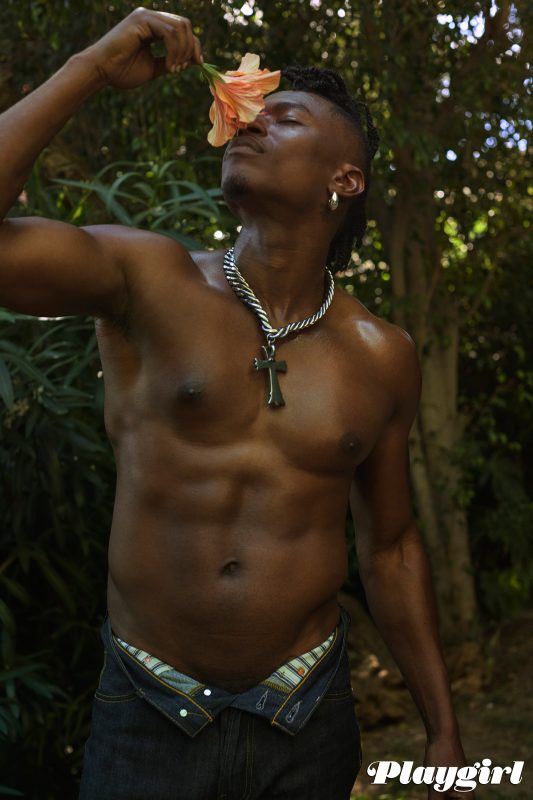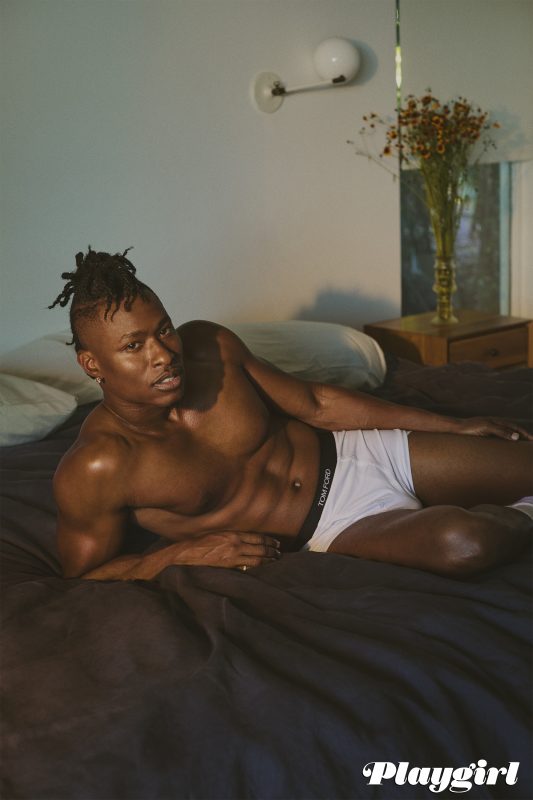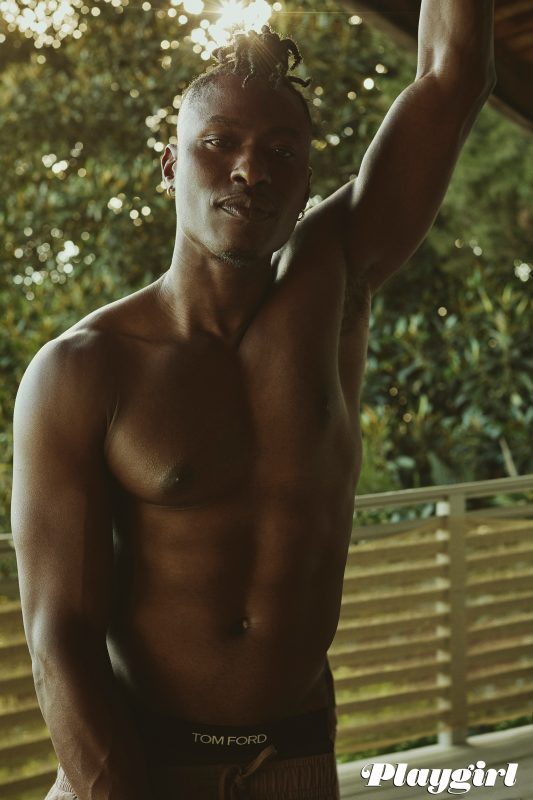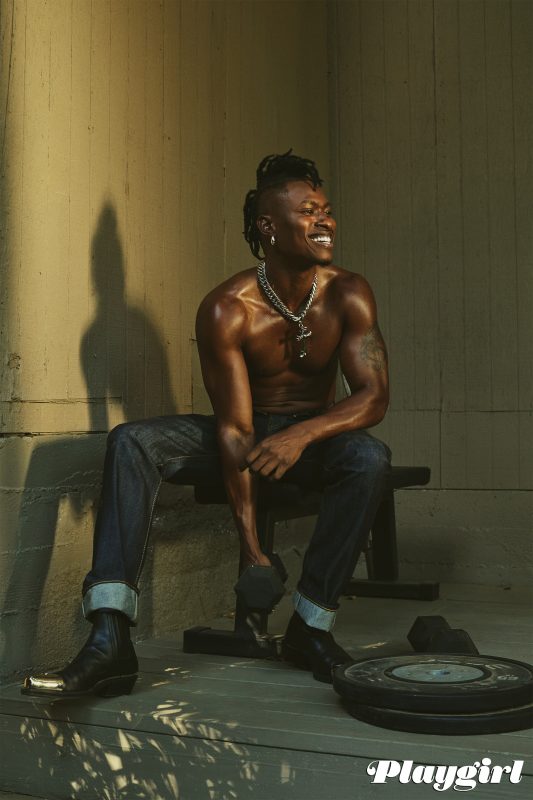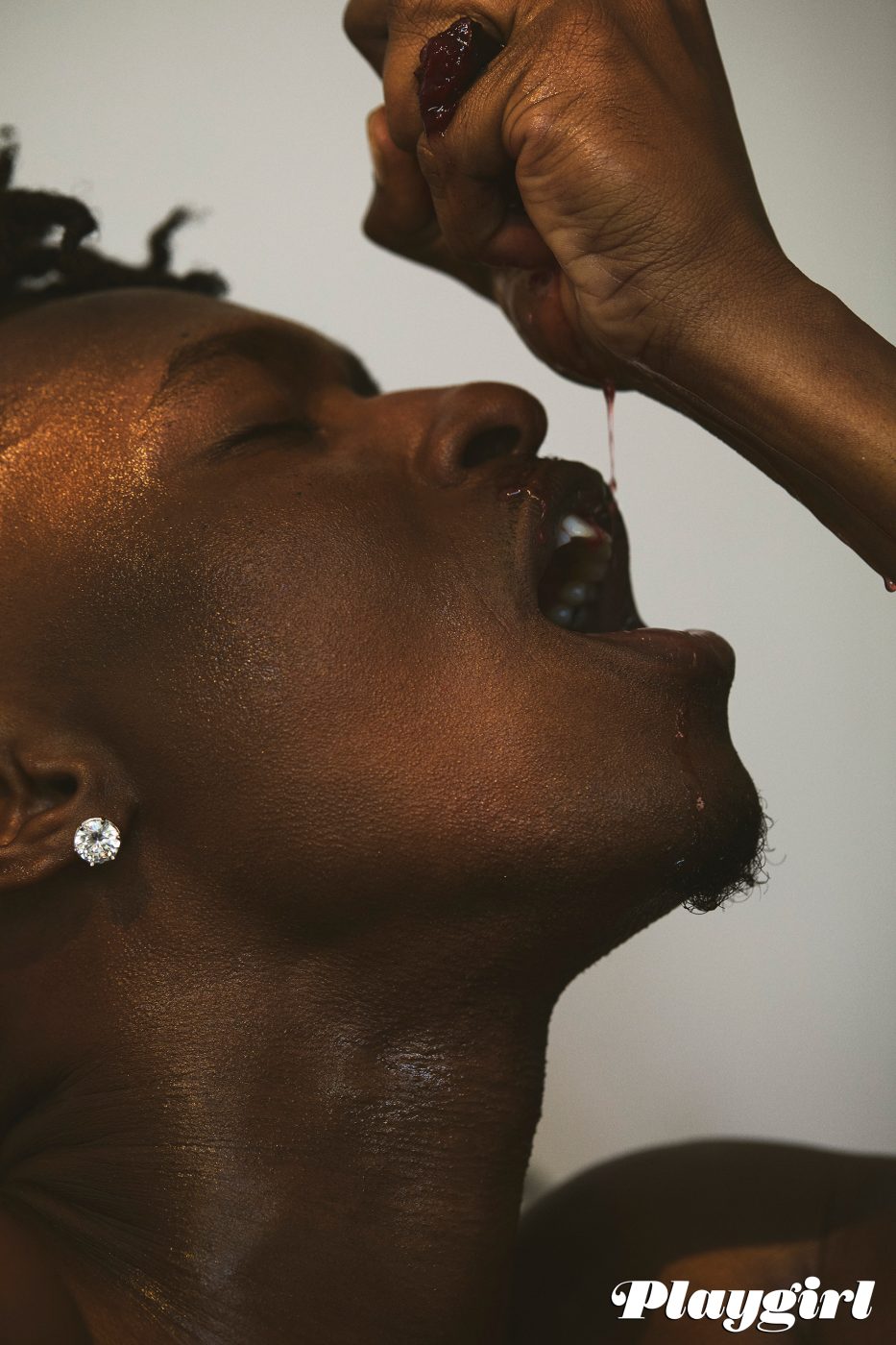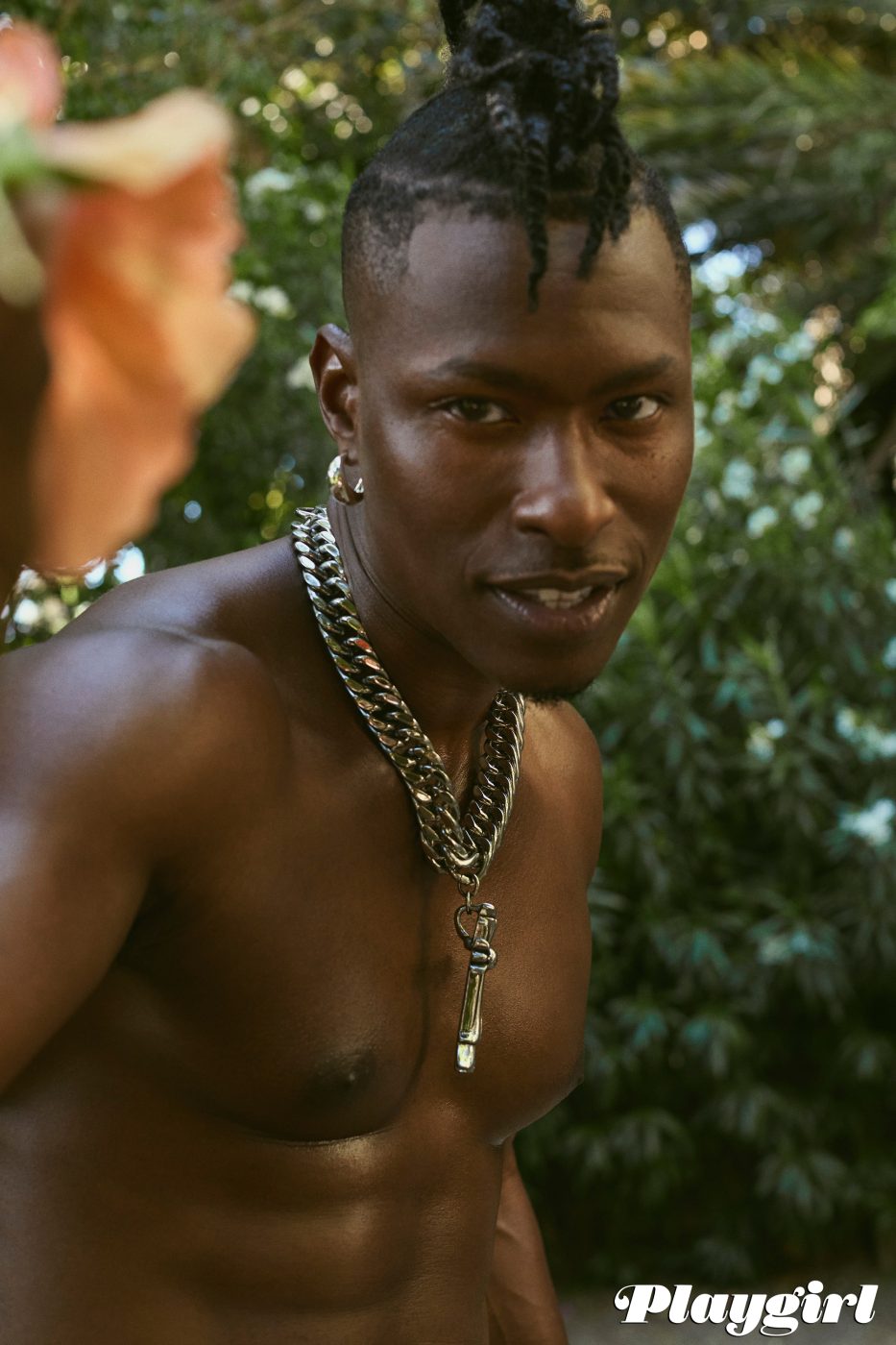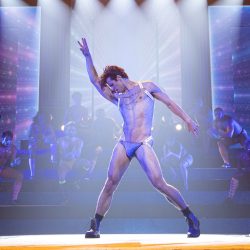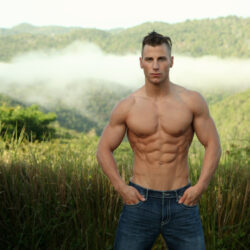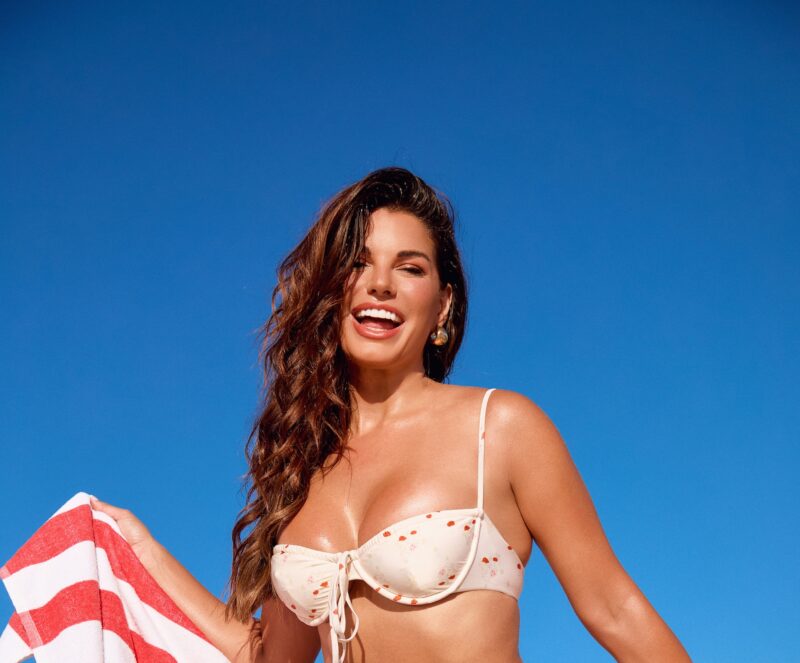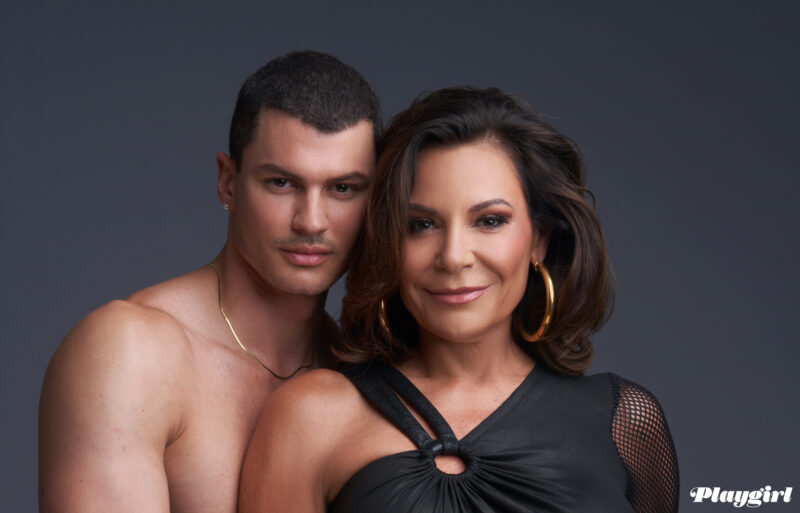His third EP, Table for Two, won the 2022 Grammy Award for Best Progressive R&B Album; in 2023 he was nominated for a Grammy for co-writing the track “Alien Superstar” from Beyoncé’s masterpiece, Renaissance. This June, Lucky Daye dropped his third album, Algorithm, which he’s currently touring the US to promote, and recently performed live on Jimmy Kimmel.
How did you navigate your way from the local New Orleans scene into the music industry, taking your music worldwide?
You’re right, New Orleans is definitely a local scene, which gave me a perspective of like, I have to make New Orleans proud. And I learned the only way to do that is to get out of New Orleans and make the rest of the world proud—so New Orleans can see the rest of the world being proud of me. And I think that’s how I look at it from a New Orleans aspect: when I go home it’s all love, so…
How have you grown or evolved as an artist from your early days to now: dropping the new album, going on tour and playing Jimmy Kimmel?
I know what I’m doing: I’m getting on stage and I’m getting up there, and I’m going to lose my mind. Every time. I don’t know what I look like, but I know what I feel like.
Who are some of the artists that have influenced your style and your sound, particularly contemporaries?
We’ve been talking about love since the first day of music—but everybody talks about it differently. I look up to everybody, man. Amy Winehouse, that’s my favorite. Adele has always been my dream collab. I love John Mayer. I love Beyoncé. I didn’t hear a Jay-Z album ‘til late but when I heard it, it was—I love Jay. I look at Kanye for his words—a lot of Kanye’s words are in my albums. There’s no black female doing it better than Beyoncé. When it comes to R&B or whatever, it’s Michael Jackson and Beyoncé for me. A lot of everything, man. I just love music. I love Kurt Cobain. It never stops. Lady Gaga’s my number one female artist. Period.
Regarding your album progression, what have you strived to convey and has it changed per album?
The difference between this album and the others is that I purposely didn’t want to put heartbreak on this album. I wanted to put a lot of emotion, just not heartbreak. A lot of reflective music, a lot of “I love myself”—just wings and fire. I wanted this album to be exciting and fun. There’s one song on this one that makes me emotional every time and it’s “Lemonade.” Because it makes me think about the struggle—it makes me think about how hard it was just to even get heard. I don’t know, it just messed with me a little bit.
Did you feel like heartbreak was particularly prevalent in the previous albums? Is there anything else you felt you left behind in your creative process?
Oh, definitely. The previous albums, in my mind… Rhythm and Blues, to me, sounds like: I need to be worried about something. I need to dance about worrying about something. It’s rhythm and it’s Blues, which is, [singing] “Oh, my baby left me…” It’s just reminiscing about the pain. I wanted to make sure I captured that.
Algorithm, I said: you know what? I don’t wanna be in anyone else’s box. I wanna be in my own box. Because it’s very constricting for me to do this little bit of my superpower, when I need to be… I’m Cyclops—and I got my glasses on—but I need to take them off! [Laughs] I need to burn down everything! So, I just did what I felt was right and exciting and what motivated me to look at tomorrow in a better way than I looked at it yesterday.
Regarding fashion, do you feel like you have stylistically changed after winning a Grammy and performing on late night TV shows?
Definitely. I look at style like I look at music: I try to compare everything to music metaphorically, and style—to me—you have to be a trendsetter. You have to do it first—like in music, you have to shine; you have to be flamboyant. Like in music, you have to stand out, you have to have boundaries and you have to elevate. I talked to myself on the album as if I was like God. So, I would tell myself what I needed to keep myself happy. That’s literally how I wrote this album. And I’m motivating myself as if it’s another voice telling me I’m OK and I can do this and you’ll be fine and you’ll never be alone and you don’t have to go through this by yourself and you’re not the only person in love, you know?
It’s everything I want to hear and everything that I think God is telling me. I want it to come off as if God used me as a vessel to send his message. That’s how I wrote this album. That’s why it’s so motivating. I didn’t purposely say in the beginning let’s not write heartbreak. It was closer to the end when I was like, oh, I can’t write heartbreak. I never wrote it because this whole thing is motivation. This whole thing is powerful, it’s electric, it’s fear, it’s fierce. I wanted more electricity and more sunshine, less rain.
I assume the title Algorithm is linked to the idea of going online and pressing a button and now everyone has an algorithm catered to them. Was that indeed the inspiration?
Yeah, I mean for the most part that is where the title comes from. If you remember the perspective: I’m talking to me as if God would say things to me, and I’m hoping that the people will accept it. But, yes, Algorithm to me is understanding myself and if I click something or if I talk to somebody who’s gonna’ be bad energy around me, I’m gonna catch that energy. Also, knowing whatever I used to be is still part of my algorithm and I need to know that person. I need to know all the viruses, I need to know all the sub-tweets, I need to know what people say in the comments. I need to know who I am and accept that and love that no matter what. Before I even know what it is, I love it. And that’s the motivation.
Now, regarding Playgirl, how was this shoot with photographer Jacqueline Di Milia?
Jacque was amazing. I love her. It was easy, it was flowy. I love working with people that don’t—I don’t want to say “don’t have a filter” but—that don’t care too much about whether or not they can talk or if they can’t talk because they’re going to say what they’re going to say anyway. I love that. So, we had a great time. It was very fun, it was very sensual, very creative. It was very sexy; it was exactly what I expected from Playgirl. I didn’t work out that day but hopefully my body is OK. But it was just so much fun, we stayed longer than we should have—that’s how much fun it was.
As far as relationships go, we want to know if you’re currently in a relationship and how that works while touring and everything?
You know, it’s crazy. I haven’t been in a relationship since I started my first album. I don’t know if it’s because I’m scared or if I just want to stay busy or what, but I’ve been single the whole time. Closest I had was the pandemic and I was just, like, with someone during the pandemic. That’s the longest thing I had. But single. I’m single as a song. Single as a middle finger, baby.
What advice would you give to aspiring artists?
I hate to say, “keep going,” but that’s the first rule. Keep going. You can’t stop, no matter what. Then I would say to stay ahead of yourself, but don’t lose yourself. Does that make sense? And most of it—like 99% is non-emotional. And that’s the hardest part for a person that sings vulnerable music: is to not be emotional and not take things personal. I think putting emotions in it can really throw you off your course. Just do it, you know?
More photos and the backstage video, exclusively on PLAYGIRL+
- Jewelry by Azature Jewelry.
- Necklace & jewelry by House of Chaos.

